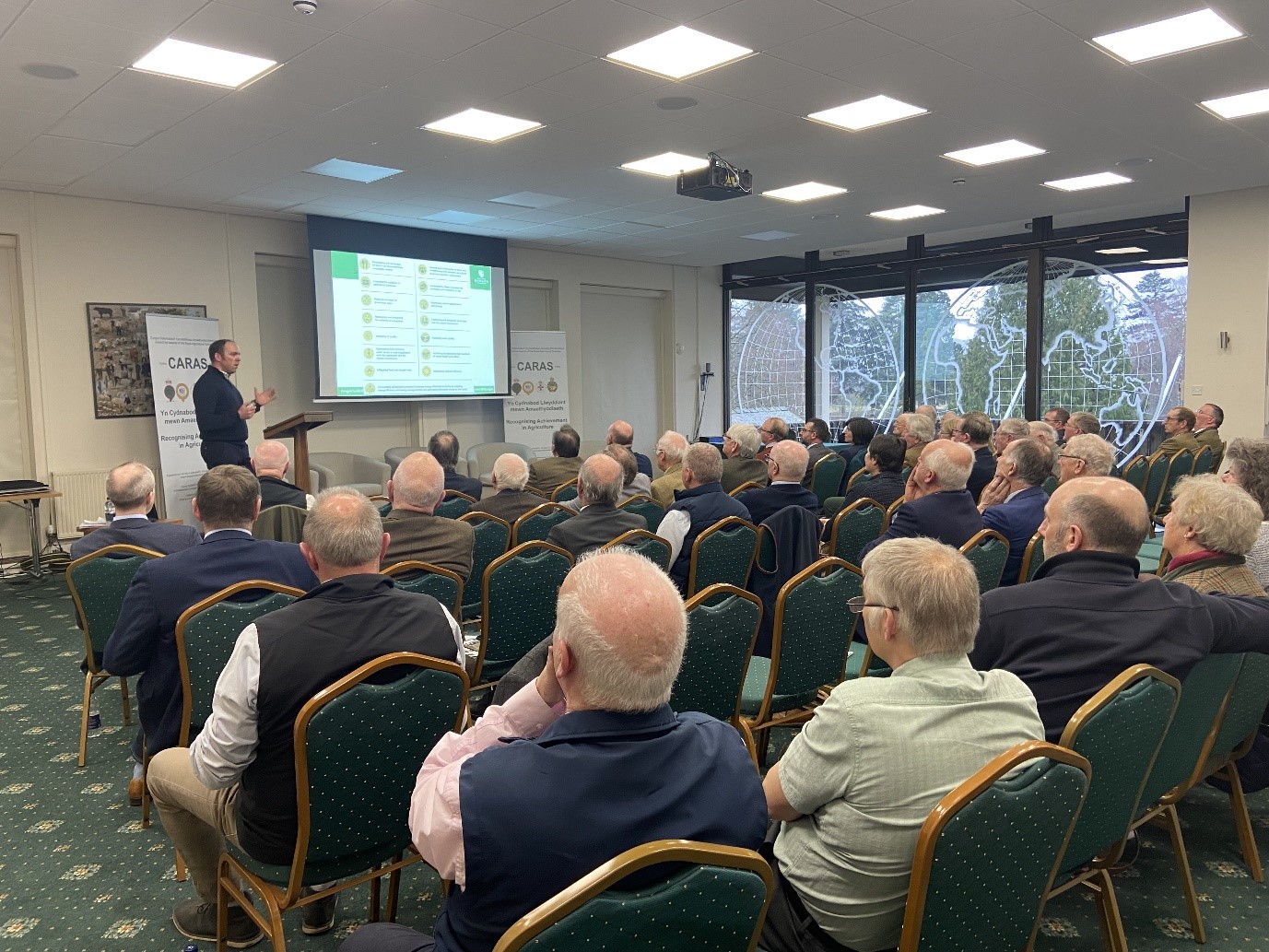The Royal Welsh Agricultural Society has played a leading role in the development of agriculture and the rural economy in Wales for over a century, since its formation in 1904.
Today our work includes providing support for business, social welfare and education in rural communities, and the organisation and staging of our ever-popular society events; the Spring Festival, the Royal Welsh Show and the Winter Fair.
SPRING FESTIVAL
Royal Welsh Showground, Llanelwedd, Builth Wells, Powys. LD2 3SY
We look forward to seeing you at the next Spring Festival on 17th & 18th May 2025.
ROYAL WELSH SHOW
Royal Welsh Showground, Llanelwedd, Builth Wells, Powys. LD2 3SY
We look forward to seeing you at the Royal Welsh Show from 21st – 24th July 2025.
ROYAL WELSH WINTER FAIR
Royal Welsh Showground, Llanelwedd, Builth Wells, Powys. LD2 3SY
We look forward to seeing you at the next Winter Fair on 25th and 26th November 2024.
SHOWGROUND
The 150 acre Royal Welsh Showground is open all year round. We host an array of exciting events set against the spectacular views of the Welsh countryside.
The Showground boasts many different venues catering for a variety of occasions such as weddings, business meetings, conferences, concerts, exhibitions and much more.
CARAS Cymru Conference urges Welsh Government to safeguard next generation

The CARAS Cymru annual conference delivered a rousing plea to the Welsh Government to ensure that the Sustainable Farming Scheme safeguards the next generation. Seeing the Wood from the Trees delivered an analysis of the Welsh Government’s proposals, including the 10% planting of trees requirement.
The conference, held at the Royal Welsh Showground, took up Welsh Government Director of Rural Affairs, Gian Marco Currado’s request for feedback on the scheme. The Vice Chair of CARAS Cymru, Mansel Raymond FRAgS, summed up the mood by stressing that the Sustainable Farming Scheme is critical for the future of Welsh agriculture. He said young people needed to be encouraged to grow food that is in world demand.
It was important not to curtail what Welsh farmers have done over the years. Income foregone was not an option when the scheme is demanding that farmers do more.
Mr Raymond said: “There seems all of a sudden to be a massive disconnect between the farming fraternity and our masters. That is something we have to change. This industry cannot afford to fall.
“If we lose production, if we lose that mass the whole fabric of the industry will be lost and we’ll have to start from the bottom. The future of food production in Wales is important.”
The conference was chaired by past RWAS President and former NFU Cymru President, John R Davies FRAgS. He put the conference and the changes being considered by Welsh Government in a global context, warning that this generation hadn’t yet seen a war.
John Davies said: “The key things we’ve got to do as a nation is to protect ourselves and also to feed ourselves.
“As farmers there is food production running through each and every one of us. It’s an absolutely crucial time for the future of Welsh agriculture and I’m incredibly pleased to have the panel we have here today.
“We’ve always been incredibly keen on having policy made in Wales, for Wales by Wales.”
Dr Nick Fenwick, formerly FUW head of policy, suggested there was an array of solutions to climate change, rather than a blanket 10% tree cover target. He said around 30% of Welsh emissions come from energy production, about double the footprint for agriculture. It is estimated that over the next 25 years the amount of energy needed in Wales would increase five fold.
He stressed that farming is part of the solution, as the biggest contributor to green energy production and in doing that also reduce agriculture’s carbon footprint. He illustrated his point by explaining that a 330 meters square area of solar panel would reduce carbon emissions by the same amount as a hectare of trees, as would a 10 kw water turbine or a 15 kw wind turbine.
Dr Fenwick urged: “Basically per unit area, solar panels are between 30 and 50 times more effective per unit area than tree planting in terms of reducing carbon emissions.
“So we have something that could complement tree planting, negate the need for tree planting on valuable farm land and form part of a far bigger equation whereby we’re reducing Wales’s carbon footprint, but we’re not doing it by an arbitrary 10% tree cover target, resulting in vast areas of agricultural land.
“Nor should we start plastering Wales with solar panels. Basically you’re talking about maybe the roof of a couple of farm sheds having the same impact as two or three hectares of trees.”
NFU Cymru Deputy President, Abi Reader FRAgS, warned of the catastrophic changes the scheme could bring to farming businesses. Referring to the ADAS Impact Report, she added: “You have 5,000 jobs that will be lost. We’ve got our 122,000 grazing livestock that are going to be removed from Wales if we have 100% uptake under the scheme.
“So over 5,000 jobs and coupled with that the loss of £200 million nearly off farm incomes throughout Wales. What is that going to do Welsh agriculture, what will that do to our communities?”
The panel also comprised the Welsh Government Director of Rural Affairs, Gian Marco Currado and Bangor University senior lecturer in Environmental Management, Dr Prysor Williams. They each delivered their perspective on sustainable farming and the new scheme proposals.
Gian Marco Currado said the Welsh Government was committed to the whole farm approach and the Sustainable Farm Scheme is currently a genuine consultation. The Welsh Government is looking for a collaborative approach. He encouraged farmers to feed in their views and offer alternative solutions.
